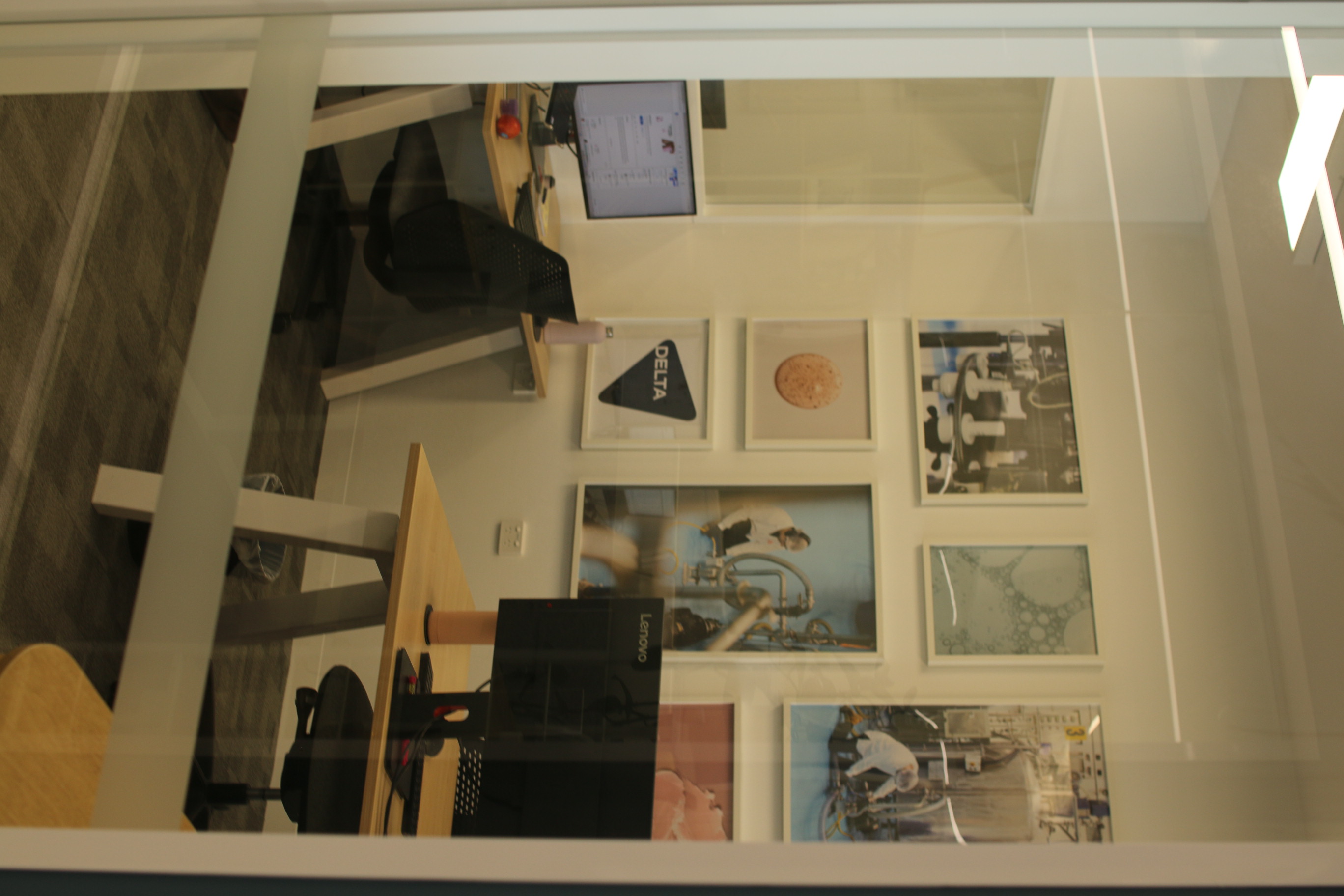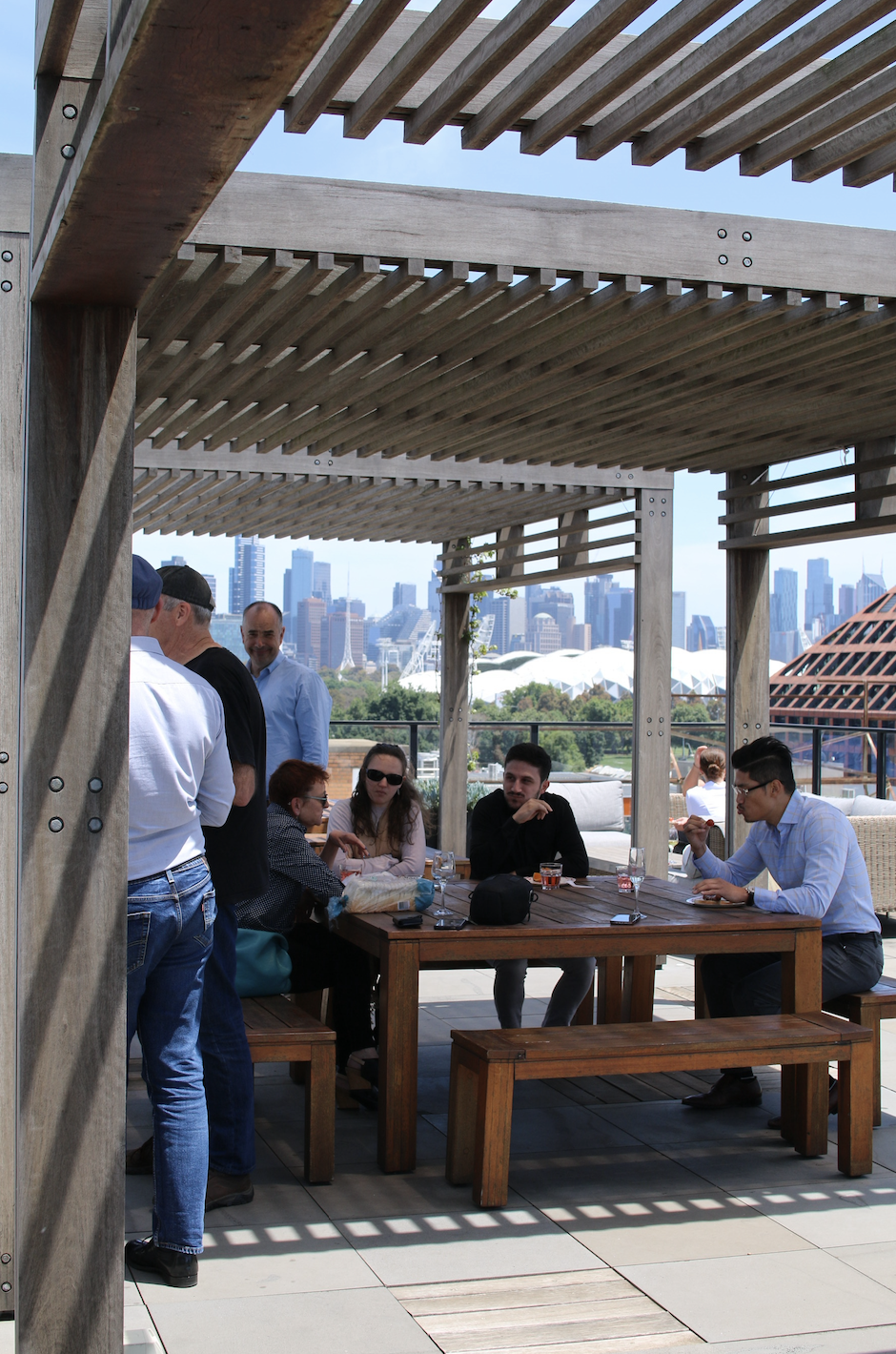The effort it takes to maintain large headquarters isn’t sustainable from both a financial and cultural perspective. The past two years have proven that workers need flexibility, not the traditional cubicles of the past. Due to this we are seeing substantial growth in demand for co-working spaces.
- Companies that are transitioning to hybrid, flexible, or remote work models are seeing employees split their time between their homes and the office.
- The past two years have proven that workers need flexibility, not the traditional cubicles of the past
Businesses struggling with low occupancy rates in their main offices are still funnelling money into keeping these spaces open without considering the alternative: providing more adaptability and workspaces closer to employees’ homes.
Adaptable spaces should be equipped with proper tech tools and acoustics for virtual meetings, as well as amenities that give members a reason to come to work. Uninterrupted, secure WiFi access and additional services eliminate the otherwise troublesome aspects of working from home or local businesses.
Collective_100 has shifted in our co-working model to accommodate people who need to work from home, but also want a space to get away. We offer corporate offices where 20-30 members might have access to the space, but only 8-10 will possibly be there at a time.
We’re also making more of an effort to have everyday quiet spaces to meet the needs of users who are coming in on demand or who have need to come in for just one day.
All of our spaces are properly wired for “Zoom room” capabilities with the latest tech tools to host flawless virtual meetings. The amenities on offer include grab and go snacks as an added benefit to our workspace, as well as our concierge team.
Is it beneficial for businesses to incorporate a co-working space as part of their portfolio during this somewhat post-pandemic era and why?
Yes – as we move into 2022, the role of the workplace is going to continually evolve. While in the past it was hard for employees to convince employers that they can be productive at home, the pandemic has proven that it is possible to conduct work outside of the traditional office space.
For businesses to remain or become successful, they must give their employees a choice and really understand their needs. There has been a shift in prioritising overall wellbeing that stemmed from the freedom of working from home. While people have missed the sense of connectivity and culture that is experienced in-office, they have adapted to the flexibility that came with working from home.
For example, people were able to work from outdoor spaces, engage in light exercise breaks throughout the day, make their own meals, etc. Offering a co-working space as a solution can allow for increased productivity, more effective utilisation of square footage, and act as both a recruiting and employee retention tool.
Which industry are we seeing the most demand from?
We are seeing demand from all types of industries. There are large groups within the legal and financial industry where client interaction, billable hours and focus time are very important.
Specifically at collective_100 we have law firms that have changed how their corporate offices are set up and are loving the flexibility of co-working. Our meeting rooms provide the perfect space to host clients for meetings and a dedicated office for heads-down work.
Could the co-working industry see continued growth in 2022?
If the first month out of the working from home mandate is indicative of anything, it is that we will continue to see levels of growth in 2022. So much so that demand is going to outstrip supply. Which is why there is a collective understanding that the traditional model of work will never fully return to its pre-pandemic state. Businesses and their employees have faced many changes over the past two years and have had to continue adapting to a new version of “normal”.
Over the course of two years, we have learned what works and what doesn’t work when it comes to both corporate and remote settings. We have discovered that it is possible to navigate a hybrid work model as well as the importance of evaluating and prioritising employee wellbeing.
How does collective_100 ensure they address evolving tenant needs?
Collective_100 has various different spaces that can cater to your needs; whether that be a quiet space to focus or take a phone call or a 16 person meeting room to host your upcoming board meeting. We have found that the biggest trend in design is flexibility and providing diverse spaces that can transition to serve multiple purposes. At collective_100 we have many flexi desk locations, whether you’re wanting to be in amongst professionals on our Mezzanine or at a more casual high desk in the kitchen.
In this day and age, the ability to project and utilise technology is important as well, for example having conference cameras for a good zoom set up to allow for hybrid meetings.
What makes co-working spaces attractive to businesses?
Coworking spaces have increasingly become relevant to businesses’ strategic plans for growth. Enterprise businesses can expand their physical footprint in a scalable and financially efficient manner by using these hybrid co-working spaces. Coworking spaces offer various corporate packages with the flexibility to scale up or down and commit to shorter-term leasing. Additionally, the amenities offered by various co-working spaces often eliminate overhead costs such as utilities, repairs, and essential stock items.
In the age of working from home and growing hybrid work models, enterprise-level IT is not easily accessible. An employee’s home or favourite coffee shop cannot offer the same internet service and security that an enterprise business can. Coworking spaces, however, can provide fast broadband, reliable connectivity, and network security. Aside from technological security, physical access to co-working spaces is limited. People are not able to walk in off the street and be within reach of important business documents, which is not the case when working from a coffee shop or local business.
Discover a Smarter Way to Work
Coworking spaces are redefining the future of work by offering businesses the flexibility, security, and resources they need to thrive. At Collective_100, we provide premium office solutions with enterprise-grade IT, secure access, and all-inclusive amenities to help your business scale efficiently.
Take the next step toward a smarter workspace strategy. Contact us today to explore our corporate packages or schedule a tour of our space!




.svg)
